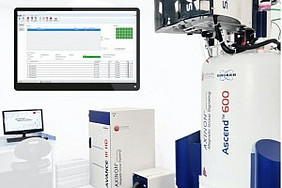The US Food and Drug Administration has cleared a Numares Health test, the AXINON® LDL-p Test System, as a new tool physicians can use to measure lipoproteins for patients at risk for cardiovascular disease. Currently, Numares is the only company in the US selling an FDA-cleared NMR test. The FDA clearance also includes the company's core technology platform, the proprietary AXINON® System, that incorporates diagnostic testing algorithms into nuclear magnetic resonance (NMR) spectroscopy.
The newly cleared AXINON® LDL-p Test System provides more detailed information about cardiac function than the standard LDL-C (low-density lipoprotein or "bad cholesterol") measurement. In a joint statement by the American College of Cardiologists and the American Diabetes Association, LDL-p measurements, like those measured by the Numares AXINON® LDL-p Test System, can help physicians in managing patients with elevated risk of cardiovascular disease, because these measurements may better reflect the true cardiac risk associated with cardiometabolic risk.
The consensus report stated that standard cholesterol measurement may not accurately reflect actual cardiac risk, especially in patients with cardiometabolic risk. Patients with cardiometabolic risk include those with prediabetes, abdominal obesity, abnormally high lipid levels and elevated triglycerides. El Harchaoui, et al* reported stronger association of LDL-p and future event of coronary artery disease compared to LDL-C.
This FDA clearance of the AXINON® technology provides a pathway for more rapid FDA clearance of other tests currently in development. A second Numares assay is expected to gain FDA 510(k) clearance later this year, the AXINON® GFR(NMR) kidney function assay.
Numares uses AI based technologies and multiple biomarkers - known and newly discovered - to develop improved diagnostic testing for conditions related to metabolic dysfunction, such as chronic kidney, liver and cardiac diseases.
*El Harchaoui, K., et al. Value of low-density lipoprotein particle number and size as predictors of coronary artery disease in apparently healthy men and women: The EPIC-Norfolk Prospective Population Study. J Am Coll Cardiol, 2007. 49(5): p. 547-53.

